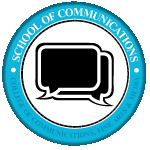Document Type
Article
Publication Date
10-2011
Abstract
The construction of online identity, though examined in other disciplines, has not yet been approached theoretically in the communication scholarship. Online identities cannot be understood as linear or static as some identity theory presents. Online identities need to be understood as continually changing representations, never fixed in one position, and perpetually in a state of assembly. Identity research within the communication literature has focused on specific characteristics of the medium (e.g., anonymity) and the effects of those characteristics on the outcomes of the communicative act rather than focusing on the communicative process of identity construction itself. In other words, past research examined the bookends of the online communicative act – this project focuses on the communicative processes in order to explain the dynamics of online identity (re)creation. In this light online identity assembly theory (OIA) serves 1) as a response to the limitation of current online identity research within the communication discipline and 2) as a way for the communication discipline to engage this developing and ever-important area of study. OIA offers a new direction for the investigation and interrogation of online identities, recognizing how the interrelation of race, class, gender, and social position in online social communities overtly and covertly influence how we assemble ourselves within online spaces. Facebook profile construction processes are interrogated as a test application of OIA theory, demonstrating how OIA theory can contribute to identity research by looking at the interrelationship of these concepts in relation to one another rather than as separate elements within identity.
Recommended Citation
Tyma, Adam W. and Leonard, Lynette G., "It’s Not All Zeroes and Ones: constructing online identity assembly theory" (2011). Communication Faculty Proceedings & Presentations. 3.
https://digitalcommons.unomaha.edu/commfacproc/3


Comments
Published in the conference proceedings of Internet Research 12.0, the 12th annual conference of the Association of Internet Researchers, October 10-13, 2011 in Seattle, WA.